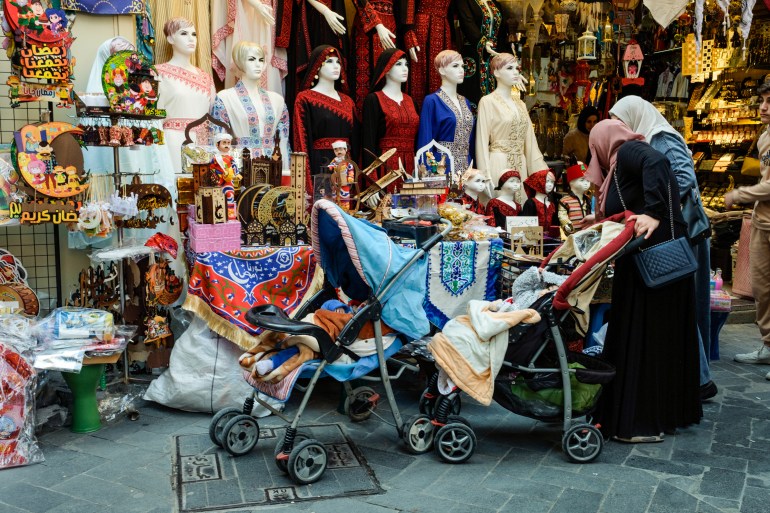As Israel strikes all around it, fear rises in Lebanon’s Sidon
Reeling from successive crises, the people of Sidon worry that the next one could come in the form of Israeli bombs.

Sidon, Lebanon – Sitting outside his carpentry shop in Sidon’s Old Souk, a short walk from the Mediterranean Sea, Marwan smiles as he watches a video playing on his phone.
“That’s me,” he says, pointing to a drummer dressed all in white as part of a crew performing a zaffeh – a traditional Lebanese wedding performance by a troupe playing music and dancing, usually as the groom first sees his bride.
Keep reading
list of 3 itemsGermany confirms probe into former Lebanon central bank chief Salameh
Israeli jets bomb eastern Lebanon for the first time since Gaza war began
Marwan’s joy in the video as he pounds his drum and leaps in dance is in stark contrast to the situation he and others in Sidon, a coastal city about a half-hour south of Beirut, are in now.
Locals’ enduring worry seems to be how to survive as prices continue to rise and Ramadan approaches, leaving many concerned about how they will celebrate the holy month.
Many in Sidon also wonder if Israel’s war will hit their shops and homes as towns on either side of the city have been hit by Israeli airstrikes or drone attacks.
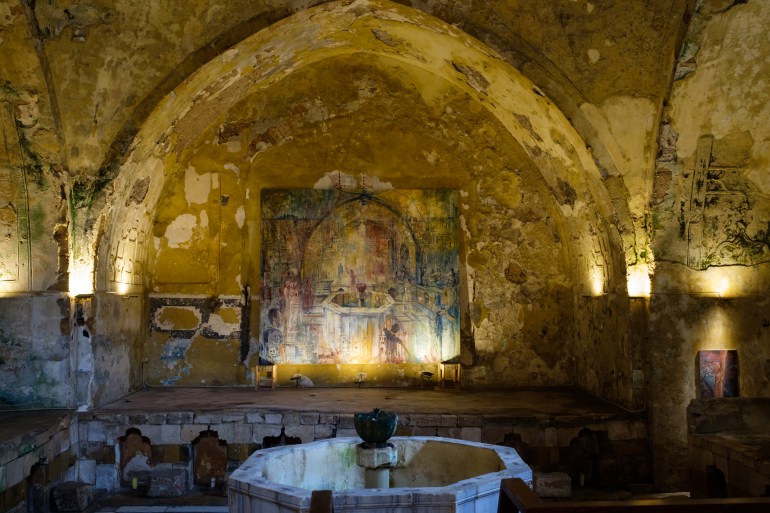
‘Of course we’re scared’
The streets of Lebanon’s third-largest city recall its storied past. Residents navigate the streets and restaurants decorated with the overlapping architectural trends from the Ottoman, Crusader and Mamluk periods.
Ramadan is approaching in early March but many said it would be hard to celebrate. On top of myriad crises, the town carries an acute awareness that a war is raging just kilometres away.
One local journalist who lives just outside Sidon says she used to head to Tyre, a 40-minute drive south down the coast, for a night out, but now simply stays at home.
Explosions along the border can be heard in Tyre, which also hosts over 3,000 internally displaced people.
Until now, Sidon has not been attacked directly by Israel’s military. But it has been sandwiched by attacks on neighbouring towns in recent weeks that have locals worrying about their security.
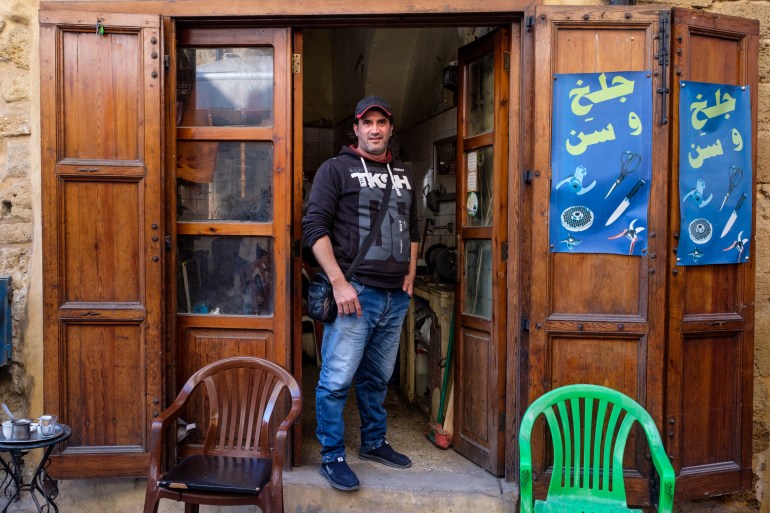
On Monday, Israel hit Lebanon’s Bekaa region for the first time since October 8, when Hezbollah opened a front with the Israeli military in support of the people of Gaza who are still suffering a relentless Israeli assault.
“Of course we’re scared,” Marwan says. “We live in a constant state of fear.”
On February 19, the town of Ghazieh, five kilometres (three miles) south of Sidon, was hit by at least two Israeli air strikes, injuring at least 14 people.
A factory and a car were hit. Locals took photos of the mushroom cloud that emerged from the destroyed factory and described how it shook the windows in their homes.
“When the strikes happened, we heard it here [in the Old Souk],” Marwan says. “We all rushed to shut our shops and run home.”
Nine days earlier, a targeted Israeli strike hit Jadra, 10km (six miles) north of Sidon, killing two people. One of the dead was a Hezbollah member, though the target of the attack was thought to be Hamas recruitment officer Bassel Saleh, who escaped with burns on his back.
‘Bad for the rich and the poor’
Sidon has a metro area population of about 250,000 people who, like the rest of Lebanon, have suffered a series of crises — from hyperinflation and banks that are unable to let people take their own money out, to the COVID-19 pandemic and the Beirut Port explosion in 2020.
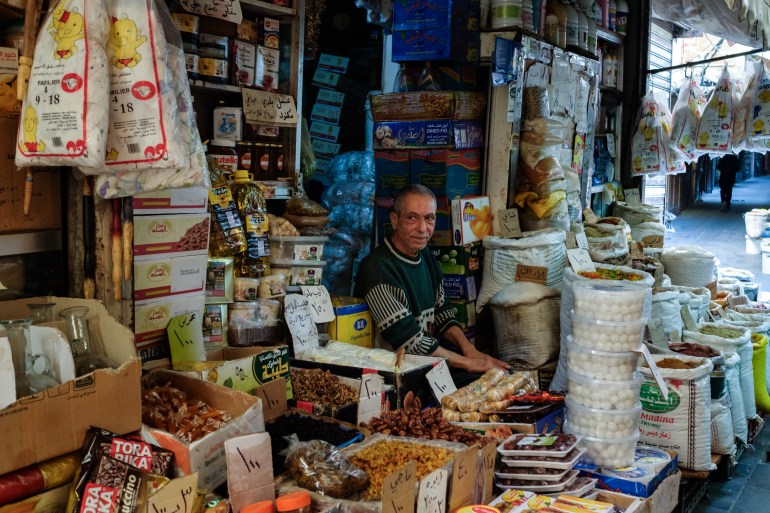
Marwan says there used to be another carpenter’s shop near his but that many businesses have closed.
Sitting next to Marwan, Zainab Hamadeh interjects: “Lebanon needs to be shaken out like a carpet,” she says, miming it with her hands, laughing.
As Marwan speaks, he is occasionally interrupted by passers-by he knows. But while the usual shop owners navigate the Old Souk’s historic stone alleys, there are few tourists or customers.
Few have come in recent months to see the Crusader Castle on the seafront or the church built on the spot where it is believed Saints Paul and Peter met in 58 CE.
Inside the Debbane Palace, a 300-year-old Ottoman-style mansion built into the Old, the reception area has glass display cases for classical Arabic instruments, an indoor fountain, and a recently added ornate Turkish chandelier.
An employee who works at the palace-cum-museum says that an Israeli attack at the end of last year made everything in the room shake and that business is still suffering.
Back in November 2023, Israel had struck an alleged Hezbollah post in the Iqlim al-Tuffah region, 20km (12 miles) east of Sidon.
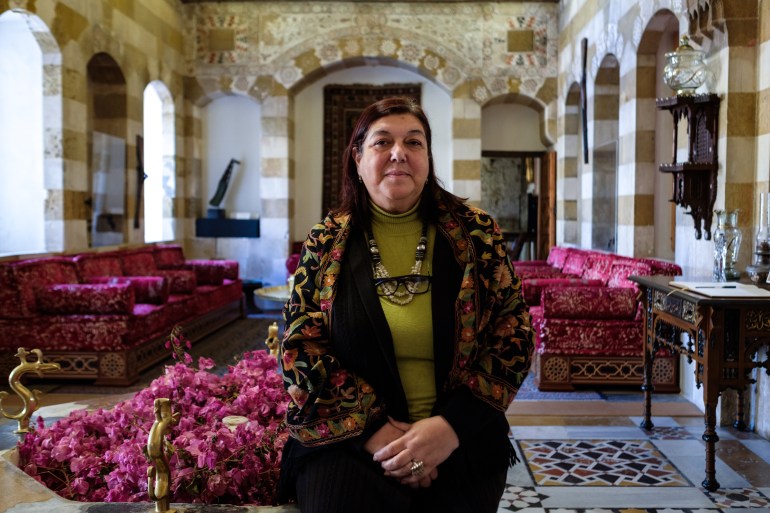
A few years ago, the Debbane Palace was welcoming 30,000 visitors during the peak summer season. Most visitors came from North America and Europe, though Middle Eastern and East Asian tourists were also well represented.
But Olfat Baba, who manages the palace, says the country’s compounded crises and a series of security incidents dating back to the summer have kept tourists away.
Baba says the palace had had only about 100 visitors a month since clashes at the nearby Ein al-Hilweh Palestinian refugee camp over the summer.
In February, she says, only about 30 visitors had passed through the palace’s storied doors. On the day that she speaks to Al Jazeera, there is only one Indonesian tour group navigating the Old Souk.
“We always have hope because without hope we cannot live,” Baba says, as songbirds sing from a cage above the palace’s entrance door.
“But in Sidon, the economic situation is bad for the rich and the poor.”
Baba says she is more “fed up” with the current economic situation and the political actors’ infighting, which she says is holding up any progress for the country, than she is afraid of being killed in an attack.
But, she add, the attacks surrounding Sidon are a potent warning for anyone in the region.
“Maybe we’ll be in the wrong place at the wrong time,” she says. “No one’s secure. No one’s safe.”
